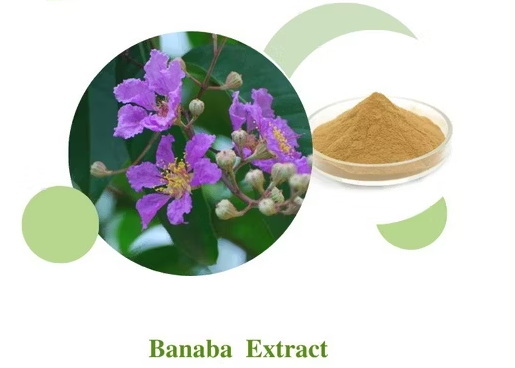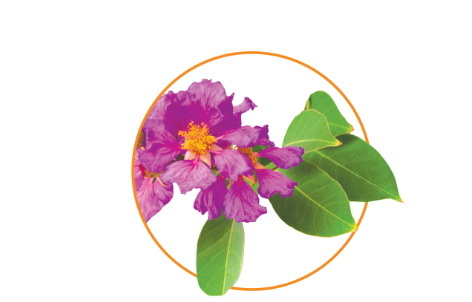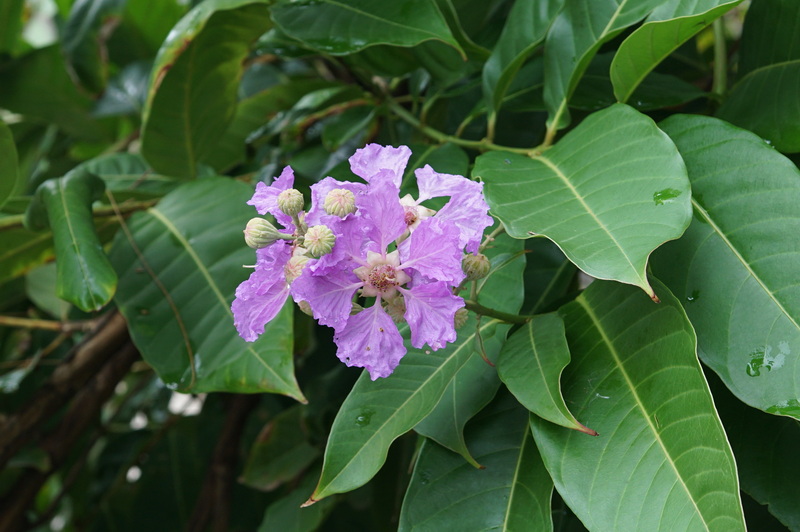Content Menu
● Introduction to Banaba Leaf Extract
● Regulatory Frameworks
>> 1. Registration and Approval
>> 2. Safety and Efficacy Standards
>> 3. Labeling and Advertising Regulations
● Production and Quality Control
>> 1. Extraction Methods
>> 2. Standardization and Purity
● Market Trends and Future Directions
● International Regulatory Comparisons
>> 1. United States
>> 2. European Union
>> 3. Australia and New Zealand
● Challenges and Opportunities
>> 1. Regulatory Harmonization
>> 2. Consumer Awareness
>> 3. Sustainability
● Conclusion
● FAQ
>> 1. What Regulatory Approvals Are Needed for Banaba Leaf Extract Products?
>> 2. How Does Banaba Leaf Extract Affect Blood Sugar Levels?
>> 3. Are There Any Known Side Effects of Banaba Leaf Extract?
>> 4. What Are the Labeling Requirements for Banaba Leaf Extract Products?
>> 5. How Is Banaba Leaf Extract Produced?
● Citations:
Banaba leaf extract, derived from the Lagerstroemia speciosa plant, has gained popularity for its potential health benefits, particularly in regulating blood sugar levels and providing antioxidant support. However, when incorporating this extract into products, manufacturers must navigate a complex regulatory landscape to ensure compliance with various national and international standards. This article delves into the regulatory considerations for using banaba leaf extract in products, including registration requirements, safety standards, and labeling regulations.

Introduction to Banaba Leaf Extract
Banaba leaves have been traditionally used in herbal medicine, especially in Southeast Asia, for their purported health benefits. The extract is rich in corosolic acid, which is believed to contribute to its therapeutic effects. However, the use of banaba leaf extract in commercial products requires careful adherence to regulatory guidelines to ensure safety and efficacy.
Regulatory Frameworks
1. Registration and Approval
In many countries, including the Philippines and India, any food supplement or nutraceutical must be registered with the relevant health authority before it can be marketed. For instance, the Philippines' FDA requires a Certificate of Product Registration (CPR) for all health products, including herbal supplements like banaba leaf extract. Similarly, in India, the Food Safety and Standards Authority of India (FSSAI) mandates prior approval for nutraceuticals not listed in their regulations.
2. Safety and Efficacy Standards
Ensuring the safety and efficacy of banaba leaf extract products is crucial. Manufacturers must provide evidence of the extract's purity and potency, as well as any potential side effects or interactions with other medications. For example, corosolic acid may interact with certain drugs, such as diclofenac, which could lead to kidney damage in individuals with impaired kidney function.
3. Labeling and Advertising Regulations
Labeling and advertising of products containing banaba leaf extract must comply with local regulations. Claims about health benefits must be supported by scientific evidence, and labels should include warnings for specific groups, such as pregnant women or individuals with diabetes. In South Korea, for instance, functional labeling is allowed on general foods if they contain scientifically proven functional ingredients, including banaba leaf extract.
Production and Quality Control
1. Extraction Methods
The method of extracting corosolic acid from banaba leaves can significantly impact the quality and efficacy of the final product. Patents have been filed for processes that enhance corosolic acid content while reducing bitterness, ensuring a more palatable and effective extract.
2. Standardization and Purity
Standardization of herbal extracts is essential to ensure consistency across batches. Manufacturers must report the purity of the compound and any major impurities, especially when dealing with mixtures like herbal extracts.

Market Trends and Future Directions
As consumer interest in natural health products grows, the demand for banaba leaf extract is likely to increase. However, manufacturers must stay abreast of evolving regulatory requirements and consumer preferences, such as sustainability and eco-friendliness. The trend towards green and sustainable production methods could influence how banaba leaf extract is sourced and processed.
International Regulatory Comparisons
1. United States
In the U.S., banaba leaf extract is generally recognized as safe (GRAS) for use in foods and dietary supplements. However, any health claims must be substantiated by scientific evidence, and compliance with FDA regulations is mandatory.
2. European Union
In the EU, herbal extracts like banaba are regulated under the Traditional Herbal Medicinal Products Directive (THMPD) or as food supplements. Registration with the European Medicines Agency (EMA) may be required for medicinal products.
3. Australia and New Zealand
In Australia and New Zealand, banaba leaf extract is regulated by the Therapeutic Goods Administration (TGA) and Medsafe, respectively. Products must comply with safety and efficacy standards set by these agencies.
Challenges and Opportunities
1. Regulatory Harmonization
One of the challenges faced by manufacturers is the lack of harmonization in regulatory standards across different countries. This can complicate the process of launching products globally.
2. Consumer Awareness
Increasing consumer awareness about the benefits and risks of banaba leaf extract can drive demand but also requires manufacturers to be transparent about product ingredients and effects.
3. Sustainability
The growing emphasis on sustainability presents an opportunity for manufacturers to adopt environmentally friendly practices in sourcing and processing banaba leaves, enhancing their brand reputation.
Conclusion
Incorporating banaba leaf extract into products requires a deep understanding of regulatory frameworks, safety standards, and production quality. By adhering to these guidelines, manufacturers can ensure compliance while capitalizing on the potential health benefits of this natural ingredient. As the market for natural health products continues to expand, staying informed about evolving regulations and consumer preferences will be crucial for success.

FAQ
1. What Regulatory Approvals Are Needed for Banaba Leaf Extract Products?
Banaba leaf extract products typically require registration with the relevant national health authority, such as the FDA in the Philippines or FSSAI in India. This involves obtaining a Certificate of Product Registration (CPR) or similar approval.
2. How Does Banaba Leaf Extract Affect Blood Sugar Levels?
Banaba leaf extract, particularly corosolic acid, is known to help regulate blood sugar levels. However, individuals with diabetes should monitor their glucose levels closely and consult a healthcare provider before using banaba products.
3. Are There Any Known Side Effects of Banaba Leaf Extract?
While generally considered safe, banaba leaf extract can interact with certain medications and may lower blood pressure. It is also advised to avoid use during pregnancy and breastfeeding due to limited research.
4. What Are the Labeling Requirements for Banaba Leaf Extract Products?
Labels must include warnings for specific groups, such as pregnant women or individuals with diabetes. Claims about health benefits must be supported by scientific evidence.
5. How Is Banaba Leaf Extract Produced?
Banaba leaf extract is produced through various extraction methods, with some processes focusing on enhancing corosolic acid content while reducing bitterness.
Citations:
[1] https://patents.google.com/patent/JP2005263650A/en
[2] https://www.fda.gov.ph/fda-advisory-no-2023-0581-public-health-warning-against-the-purchase-and-consumption-of-the-unregistered-food-product-unbranded-banaba-lagerstroemia-speciosa-herbal-capsule-herbal-f/
[3] https://pmc.ncbi.nlm.nih.gov/articles/PMC7589006/
[4] https://patents.google.com/patent/JPWO2005099486A1/en
[5] https://fssai.gov.in/upload/uploadfiles/files/Compendium_Nutra_29_09_2021.pdf
[6] https://patents.google.com/patent/CN104981241A/zh
[7] https://naturmedscientific.com/banaba-leaf/
[8] https://www.healthline.com/nutrition/banaba-leaf
[9] https://www.kimchang.com/jp/insights/detail.kc?sch_section=4&idx=22705
[10] https://www.rxlist.com/supplements/banaba.htm
[11] https://cocoactivenutrition.com/learn/banaba-leaf/






























